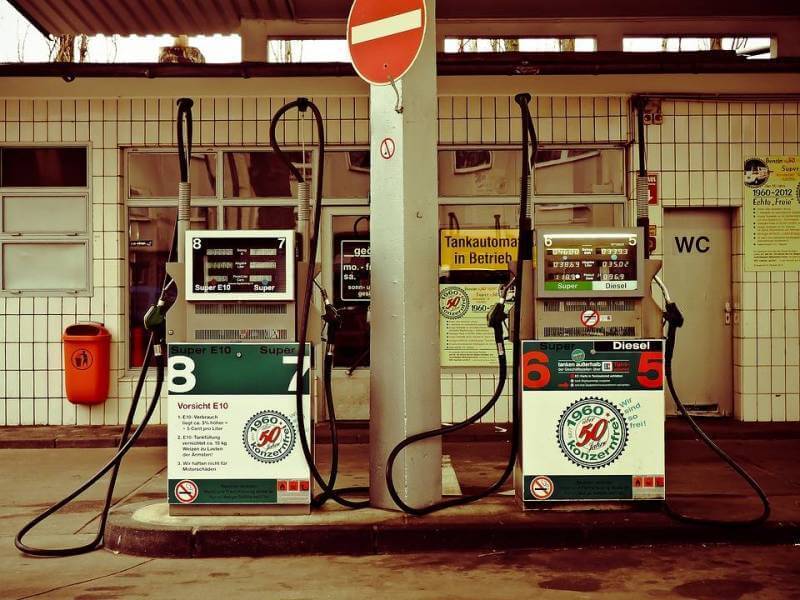Ever since you have started driving, you’ve been hearing different opinions on whether or not you should choose regular gas, mid-grade gas, or premium. When you’re next at the pump, choosing which type of gas to use can be a hassle, and, commonly, drivers will opt out of the regular fuel.
 However, these drivers are often unaware of what gives one type its respective value over another. Therefore, it is important to have a general understanding of the difference between premium and regular gasoline, so that informed decisions may be made when filling up at the pump. Here is the main difference between the two.
However, these drivers are often unaware of what gives one type its respective value over another. Therefore, it is important to have a general understanding of the difference between premium and regular gasoline, so that informed decisions may be made when filling up at the pump. Here is the main difference between the two.
Energy Density
When it comes to the difference between premium and regular gasoline, energy density is a major factor. It refers to how much energy a certain volume of fuel contains. For example, when you have a tank with 100 gallons of gas in it, the total amount of energy contained within this tank would be measured in megajoules, which is equivalent to 0.1 MJ/liter or about 20 kWh if the gas were ideal for an electric car.
In general, the more energy a given volume of fuel contains, the more expensive it is. A gas station may offer three types of gasoline: regular, mid-grade, and premium. The energy density of regular gasoline is approximately 124,500 kJ/l while in the case of premium gasoline it’s around 142,700 kJ/l. As you can see, there is a significant increase in energy density from regular to premium gasoline. This makes premium gasoline the better option.
Octane Rating
Octane rating is a measure of gasoline’s ability to withstand engine knocking or pinging. Although this may not be important now, according to this car dealer, as your car ages it will become more susceptible to damage due to engine knocking. Engine knocking can occur when there is low octane in the gas tank and the pistons are unable to compress it fully before igniting. If you’ve ever heard an older car rattle after turning it off, that was likely caused by engine knocking.
Premium gasoline usually has a higher concentration of octane than regular gasoline does because it must be able to resist more pressure within the cylinders without combusting prematurely due to its energy density. Having more octane allows premium gas engines to work more efficiently with higher compression ratios, which allows the engine to run more efficiently and produce fewer emissions.
The octane rating of gasoline is measured by an anti-knock index (AKI) or research octane number (RON). Regular fuel comes with an AKI around 80 to 85, while premium fuel typically has an AKI ranging from 91 to 93. When choosing your gasoline based on this factor, you should only concern yourself with what type will be best for your vehicle. It is important to remember that not all cars allow the use of premium fuel, despite its higher octane rating.
Cleaner-burning Properties
Although regular gas is usually more than adequate for your car, if it has been running fine with premium, then you might as well save some money by using regular gas. Be aware that more deposits form on valves of cars that use regular fuel over those of premium fueled vehicles due to the presence of sulfur in regular gasoline. The only downside to using a higher octane gas with a lower output is a slight drop in performance due to a drop in fuel efficiency compared to regular gasoline with similar engine technology.
Therefore, when deciding whether or not to opt out of getting premium gasoline at the pump, it is important to weigh the pros and cons. If you find that your car runs fine on regular gas, then by all means continue to use it without worrying about paying extra money for premium fuel. However, if your vehicle starts sputtering or knocks after using regular gas multiple times, then perhaps it would be best to invest in premium fuel to increase performance and prevent further damage to the engine.
Environmental Impact
Environmental impact can be somewhat difficult to understand. However, it is important to make the distinction between what type of gasoline will cause the least harm in terms of pollutants and greenhouse gases when burned. The reason premium gas has a slight lead in this area is that its higher octane rating allows cars that use it to burn more efficiently than those that run on regular gas. This means that fewer harmful substances are released into the atmosphere due to burning gasoline.

There is no clear-cut answer when deciding whether or not premium gasoline is worth it for you and your car. It all depends on how much money you want to spend and if the extra performance boost from using premium fuel will outweigh spending an additional $0.50-1 per gallon. Hopefully, this article has helped you understand the differences between these types of gasoline so you can make a more informed decision on whether or not the premium is really worth it for your vehicle.

Founder Dinis Guarda
IntelligentHQ Your New Business Network.
IntelligentHQ is a Business network and an expert source for finance, capital markets and intelligence for thousands of global business professionals, startups, and companies.
We exist at the point of intersection between technology, social media, finance and innovation.
IntelligentHQ leverages innovation and scale of social digital technology, analytics, news, and distribution to create an unparalleled, full digital medium and social business networks spectrum.
IntelligentHQ is working hard, to become a trusted, and indispensable source of business news and analytics, within financial services and its associated supply chains and ecosystems









